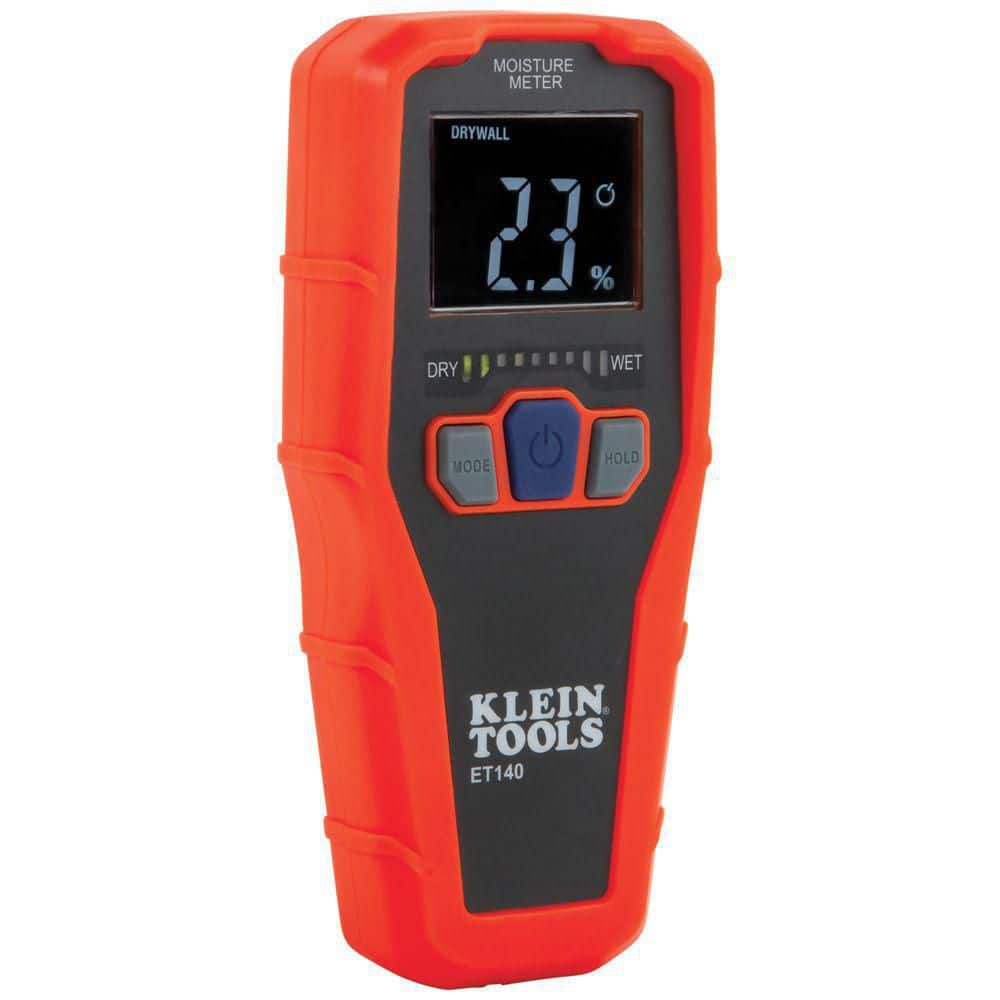The Ultimate Overview to Moisture Meters: A Comprehensive Introduction and Exactly How They Can Conserve You Cash
Dampness meters serve as essential tools in finding and keeping track of moisture material in products, aiding in avoiding costly problems and making certain the high quality of items. Comprehending the nuances of various types of wetness meters, their applications, and the prospective cost-saving benefits they supply can be a game-changer for companies and specialists alike.
Kinds of Dampness Meters
One usual kind is the pin-type dampness meter, which gauges the electric resistance in between 2 pins placed into a material. Pinless moisture meters, on the other hand, usage electro-magnetic sensing unit plates to scan a larger location without creating damages to the material's surface.

Furthermore, there are additionally specialized dampness meters created for particular products like grain, hay, or dirt. These meters supply precise moisture analyses tailored to the one-of-a-kind homes of the material being checked. Infrared moisture meters gauge the thermal residential properties of a material to establish its moisture web content non-invasively, making them useful for applications where pin or pinless meters might not appropriate. Understanding the various kinds of wetness meters available can assist markets pick the most ideal tool for their details moisture measurement demands.

Advantages of Utilizing Dampness Meters
Moisture meters supply very useful benefits in properly analyzing and checking dampness levels in diverse materials and settings. One of the key benefits of using moisture meters is the avoidance of prospective damage created by excess dampness.
In addition, utilizing dampness meters can lead to enhanced energy performance. By identifying locations with high moisture levels, such as leaks or poor insulation, adjustments can be made to boost energy preservation and minimize utility prices. In agricultural setups, wetness meters play a critical function in maximizing plant yields by making it possible for farmers to keep an eye on soil dampness levels and make educated watering choices. Generally, the benefits of making use of wetness meters span throughout different sectors, supplying cost-effective options and promoting much better quality assurance practices.
Just How to Choose the Right Moisture Meter
Picking the appropriate wetness meter includes taking into consideration essential aspects such as product compatibility, dimension variety, and calibration precision. When selecting a dampness meter, it's necessary to guarantee that the meter appropriates for the particular product you will be testing. Various products have differing electric homes that can influence moisture readings, so selecting a meter developed for your material is important for exact results. In addition, consider the dimension variety of the moisture meter. Guarantee that the meter can discover wetness levels within the range required for your applications. Calibration accuracy is another critical factor to remember. Choose a dampness basics meter with trustworthy calibration to make sure consistent and precise analyses. Some meters might require periodic calibration adjustments, so understanding the calibration procedure is essential. By thoroughly assessing these aspects, you can choose a moisture meter that meets your requirements and offers accurate moisture dimensions for your jobs.
Proper Methods for Moisture Meter Use

Cost Savings Through Moisture Meter Applications
Exactly how can the tactical application of wetness meters lead to significant price savings throughout different sectors? In the farming industry, wetness meters aid in establishing the optimal time for collecting crops, protecting against over-drying or excess wetness that can impact the last product's high quality.
Similarly, in building and construction, moisture meters assist stop costly problems by identifying moisture degrees in structure materials, such as timber or concrete, which can lead to architectural issues if not resolved quickly. By recognizing problem areas beforehand, professionals can take corrective measures to stay clear of considerable repair work or replacements, inevitably conserving time and cash.
In addition, in the food processing industry, dampness meters are necessary for checking product high quality and making certain conformity with safety policies. By precisely gauging dampness content in food products, makers can protect against spoilage, maintain freshness, and decrease waste, resulting in considerable cost financial savings. In general, the critical application of dampness meters is a valuable investment that can result in substantial cost decreases and boosted performance throughout numerous sectors.
Verdict
In verdict, wetness meters are valuable tools for measuring and identifying wetness degrees in different products. By utilizing the appropriate wetness meter and following appropriate techniques, individuals can effectively stop costly problems created by excess moisture.
Dampness meters serve as indispensable tools in detecting and checking moisture content in products, aiding in avoiding pricey damages and making sure the quality of products. Infrared wetness meters measure the thermal homes of a product to determine its wetness content non-invasively, making them helpful for applications where pin or pinless meters might not be ideal.Moisture meters use important advantages in precisely keeping an eye on and analyzing moisture levels in diverse products and settings. In farming setups, dampness meters explanation play an essential role in enhancing crop returns by enabling farmers to keep track of dirt moisture degrees and make informed watering choices.In verdict, moisture meters are beneficial tools for measuring and spotting dampness levels in numerous materials.